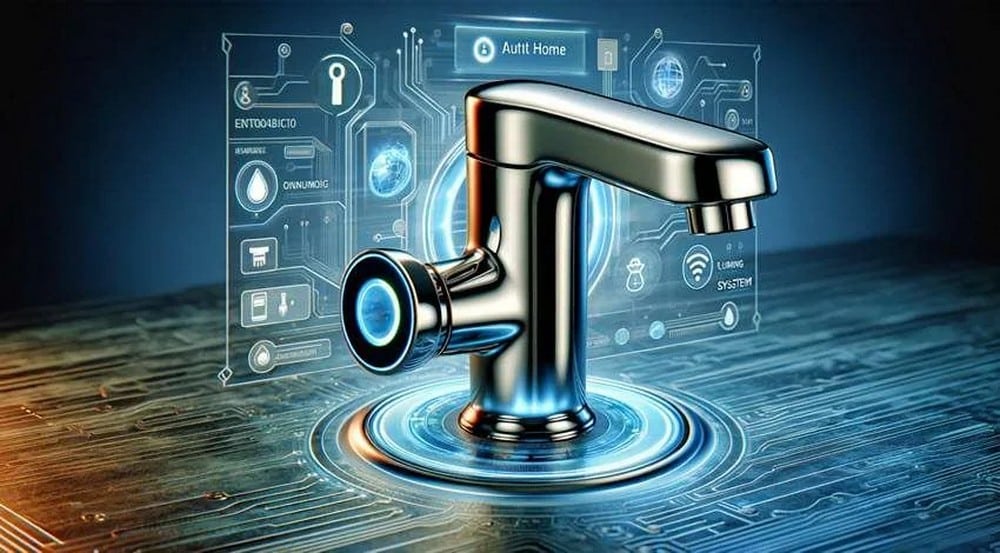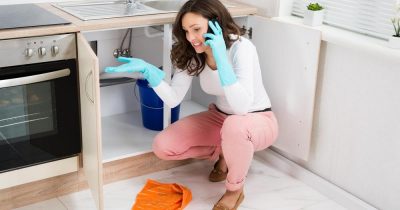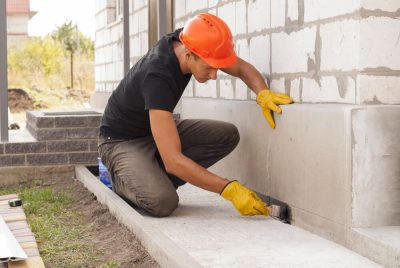
Smart homes are becoming more common, with technology integrated into almost every aspect of our daily lives. From thermostats to lighting, we can control much of our home environment with the tap of a smartphone screen. But what happens when the toilet gets blocked?
Even in the world of smart homes, plumbing issues like blocked toilets remain a reality. And while some aspects of your home may be automated, dealing with a blocked toilet requires the expertise of a professional plumber.
In this article, we’ll discuss how modern plumbing technology can help prevent and resolve blocked toilets in smart homes, why you should always rely on a professional to fix blocked toilets, and how these advancements can benefit homeowners.
The Rise of Smart Plumbing in Modern Homes
Smart plumbing technology is a relatively new but rapidly growing field, designed to make household water systems more efficient and convenient. With smart sensors, water monitors, and leak detectors, these systems can help homeowners maintain their plumbing, save water, and prevent some common issues.
However, when it comes to blocked toilets, the high-tech features of smart homes aren’t always enough. That’s where the skills of a professional plumber come into play.
Why Blocked Toilets Happen in Smart Homes
Even with advanced plumbing systems, smart homes aren’t immune to blocked toilets. Understanding why these blockages occur can help you see why calling in an expert is the best solution.
Improper Use: One of the most common causes of blocked toilets, even in smart homes, is improper use. Flushing non-flushable items, such as wipes, sanitary products, or excess toilet paper, can lead to blockages. While smart plumbing technology can monitor water flow and usage, it can’t always prevent a blockage from forming if inappropriate items are being flushed.
Plumbing Design Flaws: In older homes, outdated plumbing systems might cause blockages due to narrow pipes or poor installation. However, even new smart homes can experience blockages if the plumbing design doesn’t account for proper water flow or drainage. A professional plumber with experience in both traditional and modern systems can identify these issues and recommend solutions.
Lack of Regular Maintenance: Smart home technology can help alert homeowners to potential issues, but regular maintenance is still required. Neglecting routine checks, like clearing drains or inspecting pipes for build-up, can lead to blockages. A professional plumber can provide the maintenance needed to keep your smart plumbing system running smoothly.
How Modern Plumbing Technology Helps Prevent Blocked Toilets
Thankfully, smart homes equipped with advanced plumbing tech offer several features designed to help prevent major issues like blocked toilets. Here are some of the ways modern technology can aid in maintaining a healthy plumbing system.
- Smart water monitors: These can track water usage and alert you to unusual activity that might indicate a blockage.
- Leak detectors and automatic shut-off valves: These can detect poor water flow and stop leaks before they cause damage, but won’t fix blocked toilets.
- Pressure sensors: Found in some smart toilets, these sensors detect unusual pressure changes that could signal a blockage.
- CCTV drain cameras: While some smart plumbing systems use cameras to monitor pipes, they still require a plumber to remove blockages effectively.
Why You Need a Professional to Fix Blocked Toilets in Smart Homes
While smart technology helps you monitor your plumbing system, it doesn’t replace the skills of a professional plumber. When it comes to fixing blocked toilets, here’s why you should always leave the job to an expert.
- Accurate diagnosis: A blocked toilet may be the result of deeper issues like damaged pipes or tree root intrusion, which only a plumber can diagnose.
- Specialized tools: Plumbers have access to equipment like hydro-jetting machines and drain snakes, which are far more effective than DIY methods.
- Long-term solutions: Plumbers don’t just fix the immediate problem – they look for other issues in your plumbing system that could cause future blockages.
- Hygienic and safe: Attempting to fix a blocked toilet yourself can expose you to harmful bacteria. A plumber handles everything safely and cleanly.
The Role of Professional Plumbers in Smart Home Maintenance
In a smart home, the role of a plumber extends beyond traditional repairs. As more homes adopt smart plumbing systems, professional plumbers are evolving to incorporate new technologies into their services. Here’s how they keep your smart home running smoothly:
1. Integrating Smart Tech with Traditional Plumbing
Professional plumbers understand how to integrate smart plumbing technology with traditional systems. They can help you optimize your smart home’s plumbing setup, ensuring that all devices, whether water monitors, smart toilets, or pressure sensors, work together seamlessly.
2. Routine Inspections and Maintenance
Regular maintenance is key to preventing major issues. A plumber can schedule routine inspections, during which they’ll check your smart plumbing system for signs of wear, potential blockages, and any issues with smart devices like leak detectors. This proactive approach can help you avoid the inconvenience of unexpected plumbing problems.
3. Upgrading Old Systems
For homeowners who are upgrading their properties with smart technology, professional plumbers are essential in making sure everything is installed correctly. They’ll ensure that new smart plumbing devices are compatible with your existing system, helping you avoid costly mistakes down the line.
4. Emergency Services
In the event of a serious issue, a professional plumber can respond quickly, preventing extensive damage to your home. Many smart homes are equipped with systems that can send alerts directly to your plumber, allowing them to respond even faster in case of a plumbing emergency, like a blocked toilet or a leak.
How Modern Plumbing Benefits Smart Homeowners
The integration of smart plumbing technology provides smart homeowners with numerous advantages, including:
- Early Detection of Issues: With smart water monitors and leak detectors, homeowners can catch potential problems early, avoiding costly repairs and preventing significant damage.
- Improved Water Efficiency: Smart systems help homeowners track water usage, encouraging better conservation practices and potentially reducing water bills.
- Enhanced Comfort: Smart toilets and automated systems add an extra layer of convenience, ensuring that everything from flushing to water flow is controlled and monitored for optimal performance.
- Peace of Mind: With smart systems in place, you’ll receive alerts when something goes wrong, allowing you to call in a professional plumber before the issue escalates.
Call a Professional to Fix Blocked Toilets
Even in smart homes, where technology can help detect and prevent plumbing problems, blocked toilets are still best left to the professionals. From proper diagnosis to using specialized equipment, a professional plumber ensures the job is done right, preventing future issues and maintaining the integrity of your smart plumbing system.
Don’t let a blocked toilet disrupt the smooth running of your smart home. Instead, rely on expert plumbers to provide a fast, safe, and effective solution. By combining smart home technology with professional plumbing expertise, you’ll enjoy the best of both worlds: cutting-edge convenience and reliable service.









